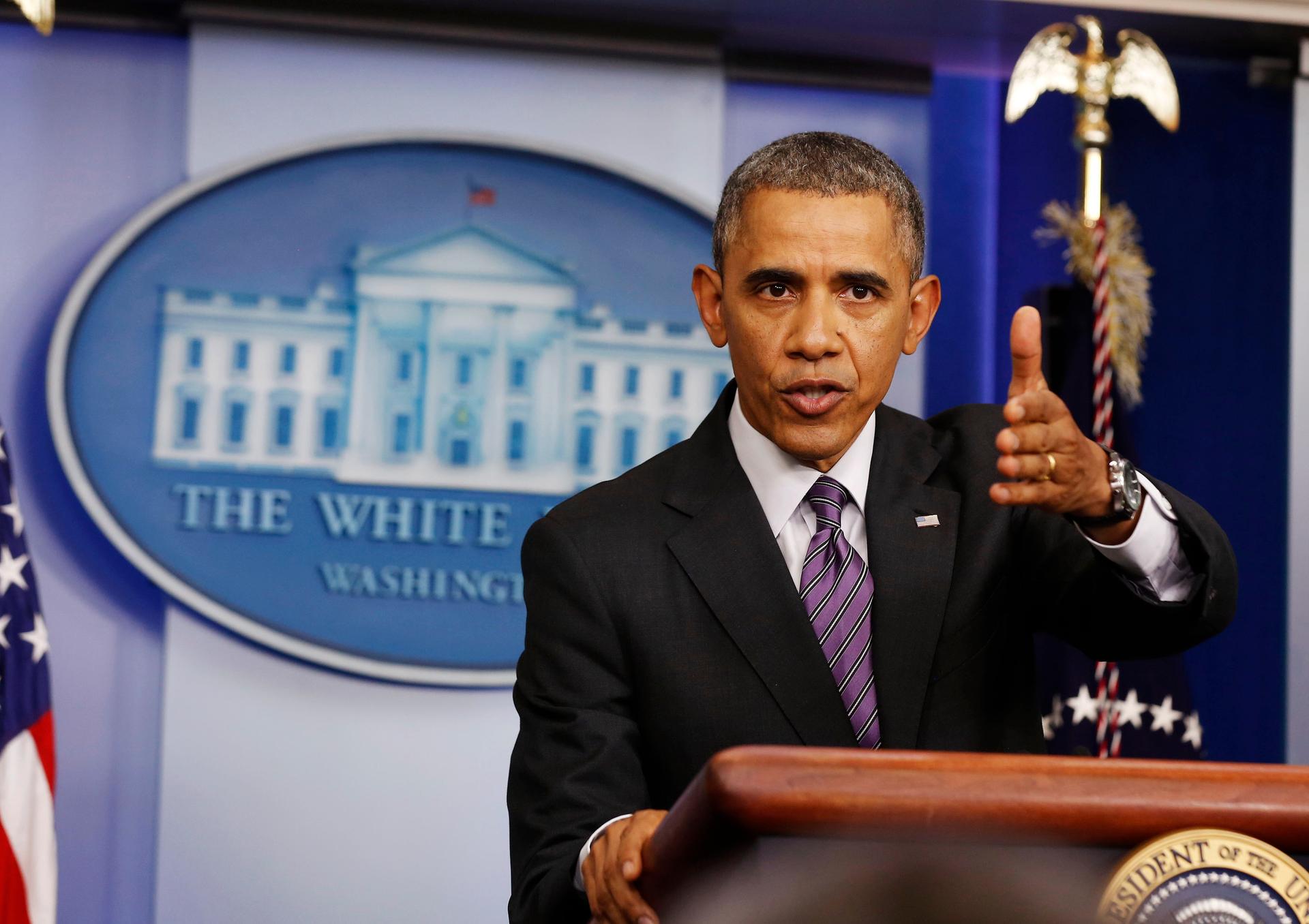A court says Americans should know the reason their government kills its citizens abroad
U.S. President Barack Obama speaks to the media in the Brady Press Briefing Room at the White House in Washington April 17, 2014.
The Obama administration has been proud of the memo it produced — and the thought behind it — outlining in what circumstances it would be acceptable for the US to kill an American citizen overseas.
But it has refused, so far, to release the document itself, asking Americans, in essence, to take their word for it. That may change now that a federal appeals court ruled the government was wrong to reject a Freedom of Information Act request for the document.
The New Yorker details the winding road to this point, and what steps the government may still take to try and keep the legal justification for targeted killings a secret.
(Editor's note: The Global Scan can be delivered straight to your inbox every weekday. Just register and sign up today.)
Is North Korea losing its ideological hold over its citizens?
North Korea has been described as a place where the "gravity, scale and nature of [human rights] violations reveal a State that does not have any parallel in the contemporary world." North Korea's people now seem aware of just how bad their situation has become.
Through a series of interviews with North Koreans who have escaped to live and work abroad — often to help feed family members left behind — The Guardian describes how North Koreans no longer have unbridled love for their "dear leader," but rather live in constant fear of what might happen if they step out of line. It may seem basic, but it's not the way things were, even 30 years ago.
If you're looking for creativity, a little booze might help. Or not
PRI's Studio 360 took a look at how alcohol and marijuana can influence our creativity. Unsurprisingly, according to scientists, there's not a definitive answer to whether these substances help us be creative. In some circumstances, they might lower our inhibitions and make us more open to offbeat ideas. In other circumstances, they may actively depress our minds, shutting them down.
Of course, the problem with this research is it's hard to define creativity. That's a question artists have been contemplating since time immemorial.
How Russia has won the propaganda war over Ukraine
In Russia, the Kremlin line on the situation in Ukraine is that a small Ukrainian clique, supported by the US, has taken control of the country and is killing its own people. Of course, the truth seems something far from that — but no one in Russia can question that storyline, or they risk being publicly branded a heretic. They could even face criminal charges for "inciting violence," according to Der Spiegel. The magazine goes behind the curtain in Russia and looks at how Russia's takeover of Crimea has launched a form of hyper-nationalism that has consumed even the opposition.
In this swath of Cyprus, time stands still
Cyprus was rocked by violence in 1974. The UN moved in to bring the situation under control and established a 112-mile-long barrier between the two warring parties — one backed by Turkey and the other backed by Greece. The buffer zone was intended to keep the two sides from further killing — and UN peacekeepers are still there.
PRI's The World has photos from inside the buffer zone. And the zone provides a sometimes eery look into life 40 years ago. Houses, cars, airports and airplanes — anything that was inside the buffer zone when the UN moved in — are still there, with a covering of dust.
What we're seeing on social
Weather around the world
India is gearing up for monsoon season, which usually starts on June 1. The monsoon is usually so regular that the weather service is actually predicting it will likely be three days late this year, according to The Hindu Business Line. The expected El Niño season has India on high alert for changes in the crucial monsoon rains, though forecasters think this late start for the season won't indicate any change in the monsoon season's overall strength.
The World is an independent newsroom. We’re not funded by billionaires; instead, we rely on readers and listeners like you. As a listener, you’re a crucial part of our team and our global community. Your support is vital to running our nonprofit newsroom, and we can’t do this work without you. Will you support The World with a gift today? Donations made between now and Dec. 31 will be matched 1:1. Thanks for investing in our work!
